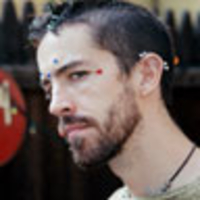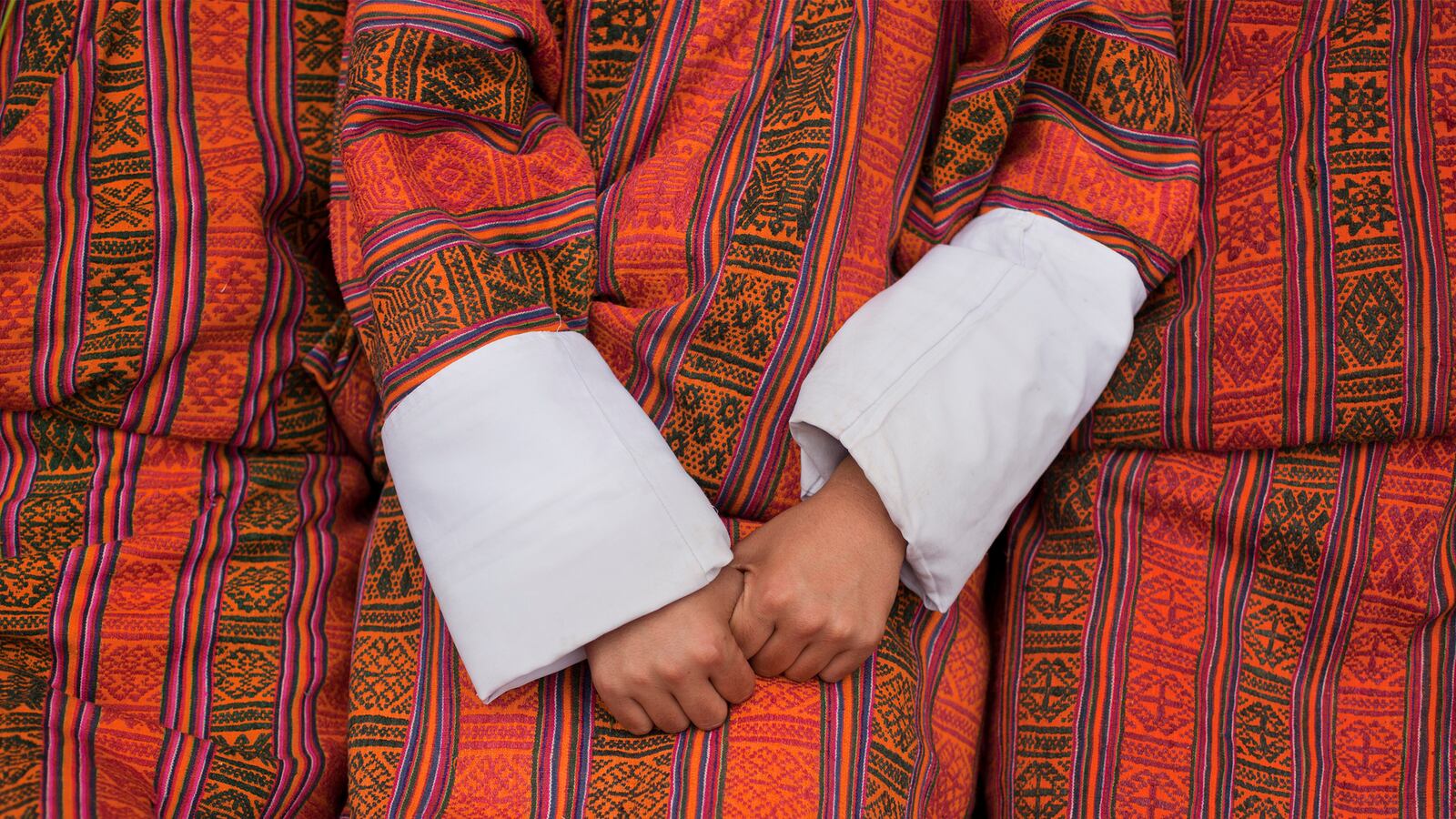The tiny south Asian country of Bhutan is best known for its concept of “Gross National Happiness,” a Buddhism-inspired alternative to Gross Domestic Product. And consistent with the peaceful image of the small country wedged between India and China, Bhutan’s small LGBT population has experienced very little persecution or violence.
Then again, most people don’t know they exist.
“I’ve never really faced any kind of harassment,” Karma Dupchen, who at 23 is one of the most public LGBT figures in the country, told The Daily Beast. Yet “growing up gay in Bhutan was a very alienating experience for me,” Dupchen said, because in Bhutan, the idea of being gay or transgender is “pretty much unheard of.”
That doesn’t mean that same-sex desires or cross-gender identities don’t exist there, of course, but there is no widely shared language with which to discuss them. Lesbianism, in particular, is under-recognized, according to anecdotal reports from the Bhutanese media (like this article from the Bhutanese Observer in 2008), and the distinction between lesbians and transgender men is blurry (as demonstrated in this 2013 interview in which one individual referred to himself/herself as both).
In 2013, as he was beginning to come out, Dupchen created the Facebook page LGBT Bhutan, the first public attempt at a visible outlet for the Bhutanese LGBT community. Dupchen has a few friends who are out to each other, but aside from himself, the only other publicly out figures he could point to were Passang Dorji, who was interviewed about being gay this year on a popular Bhutanese talk show, and Dechen Seldon, a young transgender woman who made international news when she asked to wear traditional female garb at school.
To date, Bhutan has no LGBT nonprofits, no LGBT bars or bookstores, no LGBT institutions whatsoever.
In theory, Bhutan still has a colonial-era anti-sodomy law that punishes “sexual conduct that is against the order of nature” with jail terms of up to a year. In practice, however, no one has ever been prosecuted for sodomy, and some members of Parliament have expressed openness to overturning it, as part of Bhutan’s relatively new commitment to democratic ideals: The country transitioned from an absolute monarchy (a kind of enlightened despotism in which Bhutan’s rulers pursued policies that would maximize the population’s happiness) to a constitutional one in 2008.
Yet even this embrace of democracy was idiosyncratic, with many justifying the move as useful to curry favor with Western powers. Bhutan remains a unique nation, in which its national and religious identities are carefully preserved against globalization.
This relatively benign isolation is reflected in Bhutan’s policies toward LGBT people.
Dechen Wangmo is a public health consultant who works with the Bhutanese Ministry of Health and the United Nations Development Program (UNDP) on HIV/AIDS prevention. She helped launch Lhak-Sam, Bhutan’s network for HIV positive people. The policies in Bhutan are good: The Bhutanese government provides free treatment for all people with HIV or AIDS.
But the level of understanding is low. Wangmo helped conduct behavioral surveys to try to capture an accurate representation of the number of men who have sex with men (often abbreviated MSMs in the language of sexual epidemiology) in Bhutan. In a country of 770,000, the UNDP estimated in 2012 that there were some 4,000 MSMs. (The study did not attempt to measure female sexuality, since international HIV/AIDS work still focuses on men who sleep with men.)
But when Wangmo presented the results of that study to some members of the Bhutanese government, she told The Daily Beast, “The Health Secretary came up to me and asked me, ‘Have you seen one? Have you actually talked to an MSM in Bhutan?’”
Moreover, said Wangmo, for those still unaware of LGBT identities, “any concept that you are not exposed to, that’s the easiest way out: Blame it on the West.” This is particularly problematic in Bhutan, which proudly resists Western cultural influences it deems to be harmful to Gross National Happiness.
Interestingly, unlike in many Christian and Muslim countries, religion in Bhutan is often part of the solution, not part of the problem. For example, this year, Dzongsar Jamyang Khyentse Rinpoche, a filmmaker and Buddhist lama from Bhutan, uploaded a video to YouTube in which he said of sexual diversity, “You should not be tolerating this, actually. You should be respecting it…. If you are tolerating this, it means that you think it’s something wrong that you will tolerate. But you have to go beyond that.”
Khyentse also said that being LGBT in no way impacted one’s understanding of or adherence to Buddhism, which is the official religion of Bhutan.
For his part, Dupchen told The Daily Beast that “the situation in Bhutan is improving every year… A few years ago, no one could have been able to go out and hang out together, or even dare to be open and be happy about it.” But now, he says, ignorance is dissipating as visibility increases.
Dupchen’s experience shows that even in places with little stigma or overt violence, the experience of being different can be alienating, especially in small communities. This makes online efforts like Dupchen’s LGBT Bhutan Facebook group so critical. In a tiny nation like Bhutan, every like counts.






